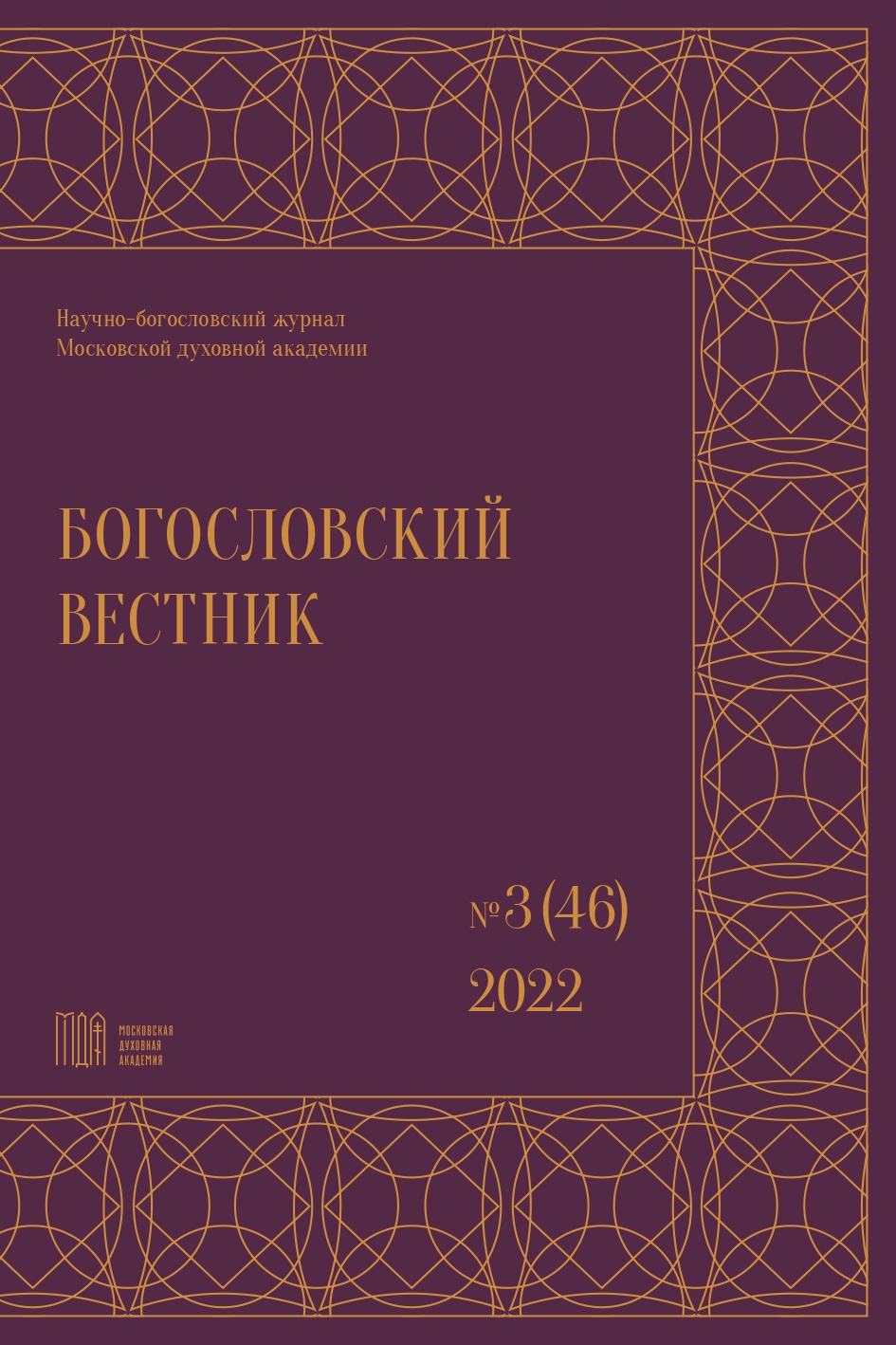The Book of Prophet Jeremiah in the Vulgate and the Commentaries of Saint Jerome
DOI:
https://doi.org/10.31802/GB.2022.46.3.003Keywords:
Jerome, revision of Aquila, revision of Symmachus, revision of Theodotion, the Septuagint, the Book of the Prophet Jeremiah, the VulgateAbstract
This article is devoted to the problem of comparing the translation of the book of the prophet Jeremiah in the Vulgate with the translation of this book in the commentary compiled by Blessed Jerome. Using the method of linguistic analysis of the text and linguistic units the author reveals a greater degree of independence of the translation of the book of the prophet Jeremiah in the Vulgate from Greek sources: the Septuagint and revisions of Aquila, Symmachus, and Theodotion. Referring to revisions in the Vulgate in several cases does not allow us to conclude that Jerome was dependent on these sources. The comparative method of analyzing the translations of the book of the prophet Jeremiah in the Vulgate and the commentary allowed the author to conclude, on the one hand, that the use of revisions in the commentary was due to the need to convey the emotional colouring of the image presented in the text, as well as to build an exegetical picture of the prophetic verse under discussion. on the other hand, in the translation of the book of Jeremiah, a certain tendency of referring to the text of the Septuagint was revealed in the commentary.
Downloads
References
Biblia Hebraica Stuttgartensi. Stuttgart: Deutsche Bibelgesellschaft, 41990. Biblia Sacra Vulgata. Stuttgart: Deutsche Bibelgesellschaft, 41994.
Septuaginta / ed. A. Rahlfs. Stuttgart: Deutsche Bibelgesellschaft, 1979.
Eusebius Hieronymus.Commentariorum In Micheam Prophetam II, 4 // PL. 25. Col. 1189. Комментарий на пророчество Михея Иероним составил в 393 г.
Incipit Prologus Sancti Hieronymi in Libro Iob // Biblia Sacra Iuxta Vulgatam Versionem (Vulgate Latin Bible) / ed. R. Weber, B. Fischer, J. Gribomont, H. F. D. Sparks, W. Thiele. Stuttgart, 1994. P. 731–732.
Septuaginta. Vetus Testamentum Graecum. Vol. XV: Jeremias-Baruch-Threni Epistula Jeremiae. Apparatus II / ed. J. Ziegler. Göttingen: Auctoritate academiae Scientiarum Gottingensis editum, 2006.
The Hebrew and Aramaic Lexicon of the Old Testament / by L. Koehler, W. Baumgartner; transl. and ed. under the Supervision of M. E. J. Richardson. Vol. 4: v — t. Leiden: Brill, 1999.
Origenis Hexaplorum, quae supersunt: sive Veterum Interpretum Graecorum in totum Vetus Testamentum. Fragmenta / ed. F. Field. T. II: Jobus — Malachias. Oxonii: E typographeo Clarendoniano, 1875.
Eusebii Hieronymi in Hieremiam prophetam libri sex. Vindobonae; Lipsae: Editum consilio et impensis Academiae Litterarum Caesareae Vindobonensis, 1913. (CSEL; vol. 59).
Eusebius Hieronymus.Commentariorum in Micheam Prophetam libri duo // PL. T. 25. Col. 1151–1230.
Graves M. Jerome’s Hebrew Philology. A Study Based on his Commentary on Jeremiah. Leiden; Boston (Mass.): Brill, 2007.
Salvesen A. Symmachus in the Pentateuch. Manchester: University of Manchester, 1991. (Journal of Semitic Studies / Monograph; vol. 15).
Downloads
Published
How to Cite
License

This work is licensed under a Creative Commons Attribution-ShareAlike 4.0 International License.








